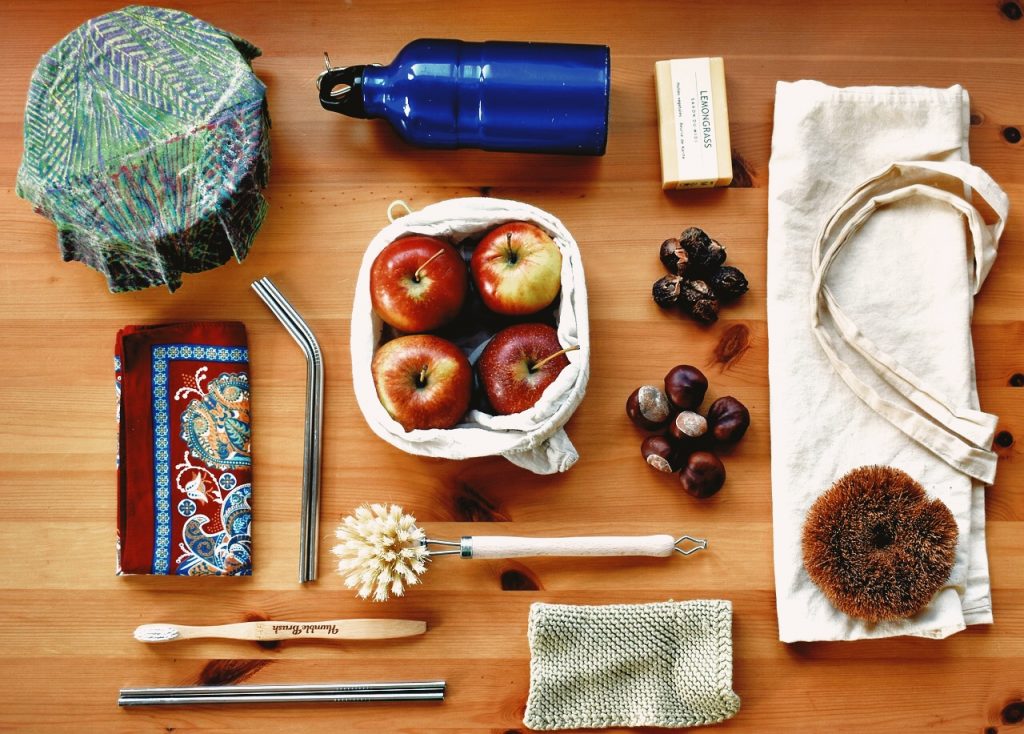
The COVID-19 is going all around the world. As this outbreak expands globally, there is increasing concern in the waste resulted due to this situation. In midst of the COVID-19 with all physical distancing activities, waste arises and this too brings challenges to the existing challenge to manage waste to create better earth.
Indonesia is estimated to generate around 190,000 tons of waste daily, 70% of which is organic waste, and the rest of it is plastics, which contribute around 25,000 tons per day. Seeing as most of the plastics are non-recyclable and non-biodegradable, these will lead to build ups in landfills and some of them might even leak to surrounding rivers, resulting in clogged rivers which increase the risk of flooding. These wastes will continue to pile up considering the lack of proper infrastructures to deal with it and the geography of Indonesia itself. In the end, this is a never-ending chain of problems, in which, could be prevented if a change in lifestyle is implemented.
The term “Zero-Waste Movement” has been circling among popular topics these days. As such, we ought to understand, what does the term “Zero-Waste” exactly mean? According to Zero Waste International Alliance, Zero-Waste is defined as the conservation of all resources by means of responsible production, consumption, reuse, and recovery of products, packaging, and materials without burning and with no discharges to land, water, or air that threaten the environment or human health. Now hold up, I know that it is a bit hard to swallow, so let’s rephrase it, to put it simply, Zero-Waste is all about moving towards circular economy while at the same time, ridding the waste altogether.
Now after reading about what Zero-Waste lifestyle entails, I bet the first thing that comes to your mind was “that’s impossible!” right? It does sound a little bit impossible to do at first, however, we need to keep in mind that the most important thing to help make the Earth a better place is not by trying to perfectly implant a Zero-Waste lifestyle by abruptly cutting off all your carbon footprints, but rather, the small steps it took to achieve it altogether. Just like what Lao Tzu once said, A journey of a thousand miles begins with a single step.
Despite all of the things I have mentioned above, Zero-Waste movement is not only beneficial to the environment, but also it gives lots of benefits to communities and helps strengthen the local economy. Reducing, reusing and recycling creates ten times more jobs than disposal, which is good for the economy. Every year, $31 billion of food are wasted, this is where community initiatives work best, they can help redistribute those food to shelters or food banks. For instance, Zero-Waste movement encourages farmer-markets to thrive, which is a win-win in every aspect. The farmers are supported, fresh ingredients for the consumers, all the while reducing the carbon footprints and eliminates the waste from food packaging.
Why has Zero-Waste Lifestyle only been popular in the last few years? This has to do with how millennials view the world. According to Bruce Tulgan, Generation Y is the most diverse generation in history in every aspect, and this makes them more inclined to be empathetic towards their surroundings. This type of attitude is why Zero-Waste Lifestyle has become a trend, it is due to their awareness and concern regarding climate change.
CASE PERCENTAGE
- four of Indonesia’s rivers – Brantas, Solo, Serayu and Progo – rank among the 20 most polluted rivers in the world.
- Indonesia generates 3.22 million metric trons per year, which is only second to China
- The Indonesian average food waste per year is 300kg per person
- Indonesia is the 2nd Lowest performer in reducing food loss & waste
Five Principles of Zero-Waste Lifestyle :
- Refuse : refuse to buy things with lots of packaging (refuse the thing you don’t need
- Reduce : reduce your belonging to the essentials
- Reuse : repurpose worn out items. Shop for used goods and purchase reusable products like steel water bottles
- Recycle : +80% of waste by weight is organic but this rarely decomposes in landfills
- Rot : it still takes some energy and resources to recycle, but it’s better than sending stuff to the landfill or allowing it to become little
- Encourage friends and family to implement the Zero-Waste Lifestyle
- Use public transportation
Let’s work together hand in hand towards better earth through the zero-waste movement. Let’s all work together to overcome this situation.
Stay safe, stay healthy.
REFERENCES
- Lakatos, E. S., Cioca, L. I., Dan, V., Ciomos, A. O., Crisan, O. A., & Barsan, G. (2018). Studies and investigation about the attitude towards sustainable production, consumption and waste generation in line with circular economy in Romania. Sustainability, 10(3), 865.
- Environmental Protection Agency. epa.gov
- https://www.nationalgeographic.com/news/2018/05/zero-waste-families-plastic-culture/
- Toronto Environmental Alliance.
- https://www.torontoenvironment.org/zerowaste_benefits
- https://foodsustainability.eiu.com/food-loss-and-waste/
- Johnson B. (2013). Simplify Your Life by Reducing Your Wase : Zero Waste Home.
WOODIES by
Celine Augla
CIMSA’s Humanitarian Response Team
CIMSLIOGRAPHY
- TNCHRT SCORP CIMSA 2019
- IFMSA Research Exchange Participant, Tunisia 2019